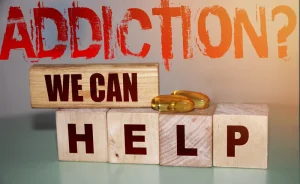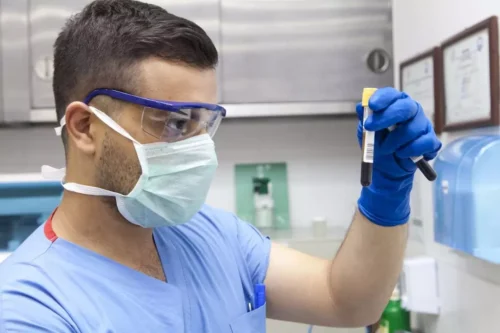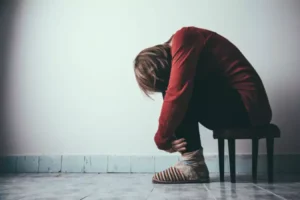
The difference in opinion is driven by a few different narratives, including the idea of “planted memories,” in which a therapist — or in some cases, a legal prosecutor — may suggest forgotten memories. The concept of repressed memory trauma blackout originated with Sigmund Freud, whose understanding of human psychology focused heavily on the unconscious and subconscious mind. Use of this website and any information contained herein is governed by the Healthgrades User Agreement.
Application Process
In doing so, you can retain your connection with the present moment and reduce the likelihood that you slip into a flashback or dissociation. Flashbacks and dissociation are easier to cope with and prevent if you can catch them early on. Therefore, it’s important to try to increase your awareness of their early symptoms. Dissociation is an experience where you may feel disconnected from yourself and/or your surroundings. A person’s genetic makeup and their environment can both contribute to how the trauma is received. As Emily Dickinson once said, “the mind is wider than the sky,” and this is very true when it comes to the complexity of storing memories.
Seek Treatment
Seek immediate medical care (call 911)if you believe a person may have alcohol poisoning or may be suffering from a drug overdose. Anxiety triggers the body’s natural “fight or flight” response, which involves the release of stress hormones like cortisol and adrenaline. In some cases, the surge of these hormones can cause physiological changes, such as increased heart rate and blood pressure, disrupting the brain’s normal functioning. Trauma survivors are often upset by memories, flashbacks, and nightmares that stem from their trauma — and they try to avoid anything reminiscent of the traumatic event. When working with individuals affected by traumatic stress, “exposure work” is often a core feature of therapy.
How Do I Determine What is Quality in Behavioral Health Services? 5 Suggestions for What to Look For
Β Blockers failed to control symptoms, and she received an implantable cardioverter‐defibrillator (panel B). Three months later interrogation of the device memory shower that further symptoms had been caused by self‐terminating polymorphic ventricular tachycardia (panel C). By Matthew Tull, PhDMatthew Tull, PhD is a professor of psychology at the University of Toledo, specializing in post-traumatic stress disorder. In a flashback, you may feel or act as though a traumatic event is happening again.


Even with cues, you’re unlikely to remember what happened during this time. One study estimated that the odds of experiencing a blackout is about 50% when blood alcohol content reaches 0.22 percent. You may not have any memory of the time that’s passed when your blood alcohol content is above that threshold. Previously known as “psychogenic amnesia,” dissociative amnesia is listed as a mental health condition in the Diagnostic and Statistical Manual of Mental Disorders, 5th edition, text revision (DSM-5-TR). Activities like yoga or exercise have been shown to be beneficial in healing from (or at least alleviating) the effects of trauma. Taking on hobbies you’re interested in, such as painting, boxing, a dance class or just going for daily walks, can also be part of self-care.
More From the Los Angeles Times
These data may be helpful, but there are real risks that incidental findings may be over interpreted. For example, in Holter ECG monitoring, the relationships are shown in fig 66. Figure 3 ECG in a 35 year old man admitted with a history of two blackouts, but no chest pain. He received thrombolysis and was referred for urgent coronary angiography when the ECG remained unchanged. He was referred to a neurologist, then eventually to a cardiologist.

- Evidence-based treatments are backed by research supporting their effectiveness.
- Information about NIMH, research results, summaries of scientific meetings, and mental health resources.
It is also possible that blackouts can lead to problems forming new memories. This tool is best used as a prompt for discussion about an individual’s unique response to trauma. Encourage your client to describe the thoughts, feelings, and behaviors they have experienced since the trauma, using this resource as a roadmap.
Symptoms of trauma
Long-term memory is typically involved in retaining information for lengthier periods of time, like remembering the birth of your child. There is increasing debate over whether we actually forget something, or if it just becomes more difficult to remember. The latest information and resources on mental disorders shared on X, Facebook, YouTube, LinkedIn, and Instagram. Often the best response to extreme threat is to act aggressively to protect yourself. Many trauma survivors, especially those who went through trauma at a young age, never learn any other way of handling threat.
Seek proper therapy

In some cases, you may also develop complex post-traumatic stress disorder (C-PTSD), which happens due to prolonged or repeated trauma over time. Excessive alcohol use, stress, medication, and epilepsy can all cause blackouts. While blackouts are a frightening experience, treatment can allow people to lead a normal life without the fear of falling unconscious or losing their memory. However, a 2016 review observes that overconsuming alcohol may lead to alcohol-induced blackouts, which can, in some cases, be due to memory loss rather than a loss of consciousness. This helps reframe how they perceive their life and memories overall. In patients with T‐LOC, there is no substitute for a thorough history, backed up by eye witness accounts of the beginning, middle, and end of an episode of T‐LOC.
Emotional Blackouts
For example, the sound of an overhead plane can take a veteran with PTSD (post-traumatic stress disorder) back to the fear they felt on the battlefield. Or a loud crack of thunder may cause a hurricane survivor to feel the same intense anxiety they felt at the time of that traumatic experience. If you’re experiencing panic attacks, consider reaching out for professional help. Psychotherapy is considered a first-line treatment for panic attacks resulting from traumatic events. Your therapist can help you develop coping skills and offer essential care to guide you toward healing.
